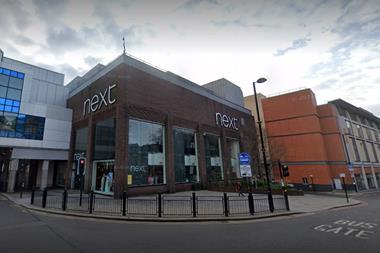Cleverness is one thing; common sense another. Watching chair Dame Sharon White impair the John Lewis brands is saddening.

Cutting fat, stiffening the management sinews and pepping up the ‘partners’ was perhaps necessary. Although it has all felt a bit Cruella de Vil, hasn’t it? But floating the idea of selling equity to outsiders last month feels worse. More Lewis Carroll’s imperious Queen of Hearts. A job-threatening gaffe that has led to Queen of Shops Mary Portas accusing what others have dubbed ‘rookie grocer’ White of ‘losing the soul of the business’. The 55-year-old former Treasury civil servant ran Ofcom for four years before joining the John Lewis Partnership as chair in 2020.
Her 2021 plan to build 10,000 rental homes over dozens of Waitrose stores by 2030 is also job-threatening.
These developments are already being obstructed by annoyed local councillors. White has staked her reputation on an income stream from all 10,000 contributing to the 40% of profits she hopes that John Lewis will be earning from non-retail sources by 2030. This is an overambitious plan put together by folk with scant front-line development experience, which has little hope of being fully realised.
Nina Bhatia, who is in overall charge of the programme, spent more than 20 years at McKinsey and then ran British Gas’s home services, before leading the launch of Centrica’s Hive smart thermostat. As a Hive fan, I salute her.
But I scratch my head and wonder about the £500m deal with fund manager abrdn to produce the first 1,000 flats. Ask Tesco how its homes-over-stores plans went. Ask anyone but your own paid consultants how you can possibly complete the programme by 2030. Ask Grainger or Greystar.
At the current rate of progress (zero homes) it will be 2025-26 before there is any substantive onsite progress on the abrdn partnership to build on three sites: near a JLP warehouse in Reading, over a Waitrose in Bromley, and over a store in Ealing. Here, plans to build 440 flats in towers up to 19 storeys high have attracted the ire of council leader Peter Mason. “We need expensive homes for sale less than we need homes for the 11,000 families on our housing waiting list,” he said in February.
A ‘Stop the Towers’ campaign is coalescing. JLP is being tarred with the ‘wicked developer’ brush. As Mason says: “It feels like big institutions are trying to twist arms and bully through a scheme that could be far better, through a precarious planning process using the ever-present threat of an appeal.” Ealing is just the start. Place your bets on how many of the 10,000 flats will be producing income by 2030.
Landsec shops well

A few seconds after trading began at 8am on the London Stock Exchange on Tuesday 28 March, Landsec’s share price jumped from 577p to 587p. An hour earlier, Britain’s bellwether REIT announced it now owned 100% rather than 50% of the St David’s retail centre in Cardiff. Sophisticated algorithms scan regulatory news service announcements these days to judge if the news is good or bad. When trading begins, computers, not humans, instantly begin to buy and sell.
Good automatic call. Where else can you get a 9.7% yield on an asset worth £226m? Landsec also bought the 50% stake it didn’t own by paying, at a guess, 50p to 60p in the pound to the banks left holding the debt when intu went pop in June 2020. This feels like a good call, one that feels like it brings to an end a nightmarish decade for shopping centre owners and marks the beginning of an era of recovery and redevelopment.
“Taking full ownership of the best shopping centre west of the Severn makes good sense,” says Stifel property analyst Alan Carter. “Shopping centres are about the only mainstream asset class where the income yield is higher than the current marginal cost of finance.”
So, in this case, both human and machines agree. And they still do. On Tuesday Landsec’s share stood around the 630p mark.
Peter Bill is a journalist and the author of Planet Property and Broken Homes






























No comments yet